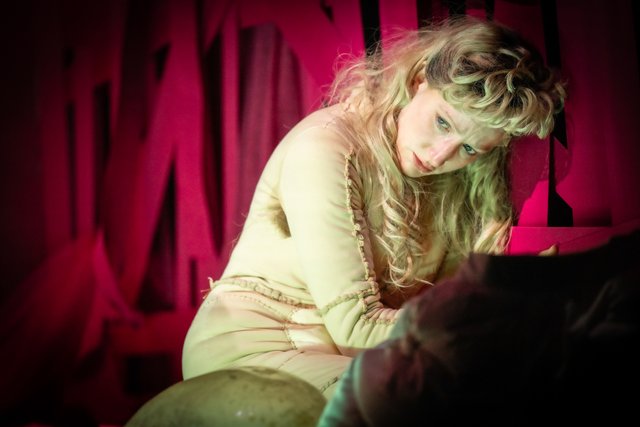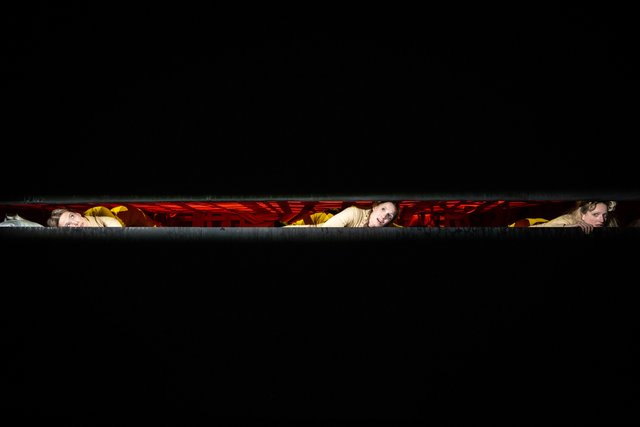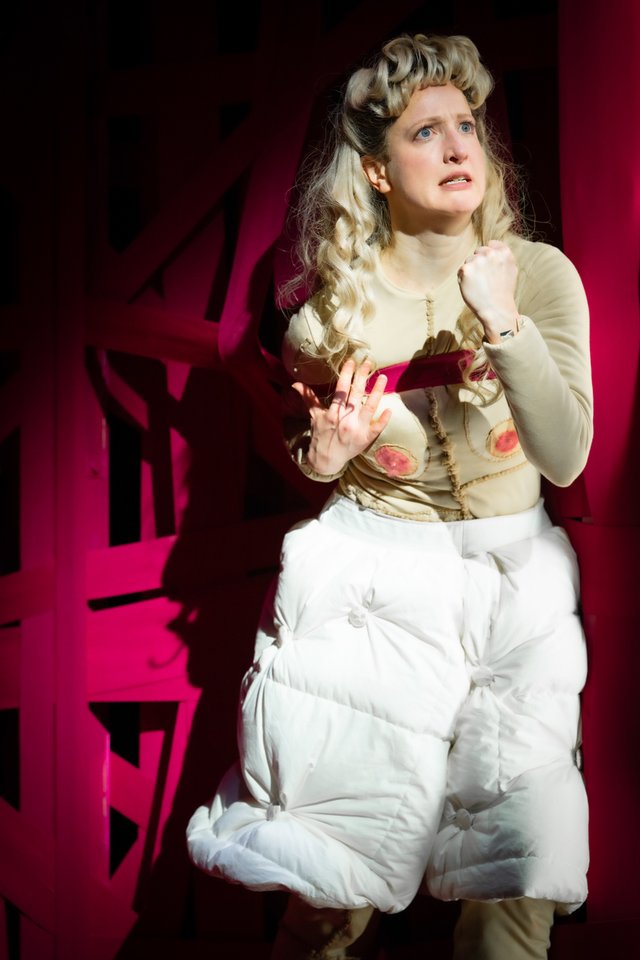Die Waffen nieder!
(Lay down your weapons!)after the novel by Bertha von Suttner
director: Katrin Plötner
ca. 2 Stunden 10 Minuten keine Pause Akustische Darstellung von Schussgeräuschen“How the world would have to breathe a sigh of relief – I thought then for the first time – if everywhere the cry went up: ‘Lay down your arms! – for ever! I wrote the phrase down in the red notebooks. But next to it I wrote despondently, in brackets: Utopia”
The Nobel Peace Prize winner Bertha von Suttner tells the story of the Austrian Countess Martha Althaus to show how a young woman who at first is patriotic and pro-war, enthusiastic about heroism and the smart uniforms of the hussars, becomes a dedicated pacifist and activist. Four wars and numerous personal tragedies shape the life of Martha Althaus. When she is 19, her first husband dies on the battlefield, leaving her with their son. This loss makes Martha realise how war also enters one’s private life and turns it upside down. She develops a different view of society, constantly widens her education and finds, in her second husband Friedrich Tilling, a person who shares and supports convictions which lie outside the social consensus.
Bertha von Suttner’s novel with autobiographical traits makes use of diary entries, letters, documents and newspaper articles to evoke retrospectively an era of war and peace, the legitimisation of acts of war, and also the feminist emancipation of a 19th century woman who finds traditional conceptions at odds with the way she sees herself. She published DIE WAFFEN NIEDER! in 1889 at the age of 46. With the story of Martha Althaus, she struck a chord in a society that was engaged in heated debate about militarism and war. The novel made Bertha von Suttner one of the most prominent representatives of the peace movement. In December 1905, she was the first woman to be awarded the Nobel Peace Prize for her activities, and today her ideas can be further elaborated into a »feminist foreign policy«. In view of current discussions about the remilitarisation of society, rearmament and the reintroduction of compulsory military service, not to mention wars going on all over the world, her anti-war novel is surprisingly topical, with Bertha von Suttner pleading for a united Europe as early as the end of the 19th century: »But tell me, gentlemen, why don’t all the decent powers of Europe form a union? That would be the simplest thing.«
Director Katrin Plötner, assisted by three actresses, explores Bertha von Suttner’s pacifist ideas and looks at the novel from a contemporary perspective. Can we even afford pacifism? Where does pacifism begin, and does it end the moment when personal safety is at stake?
Cast
René Fiegen
















